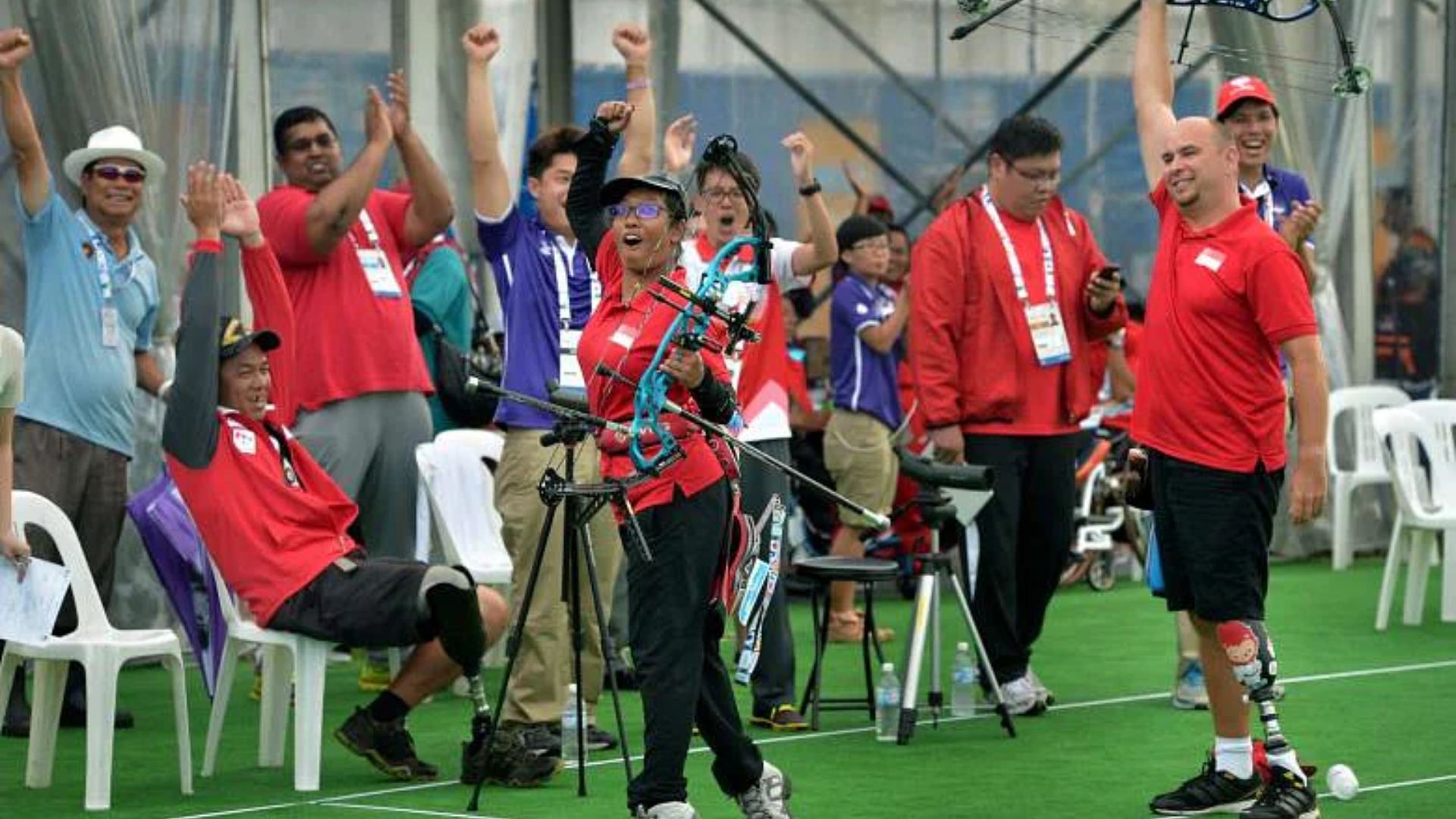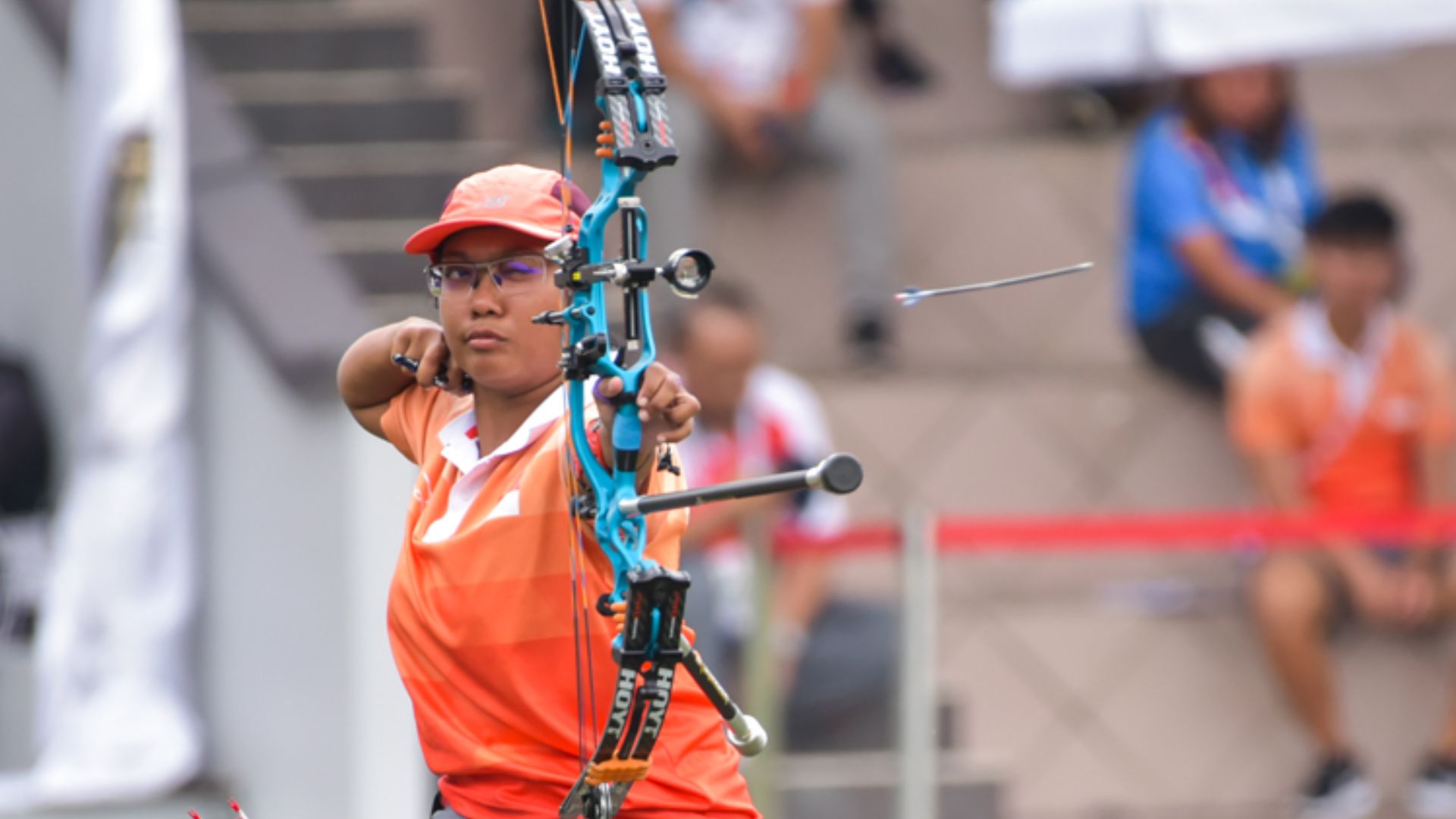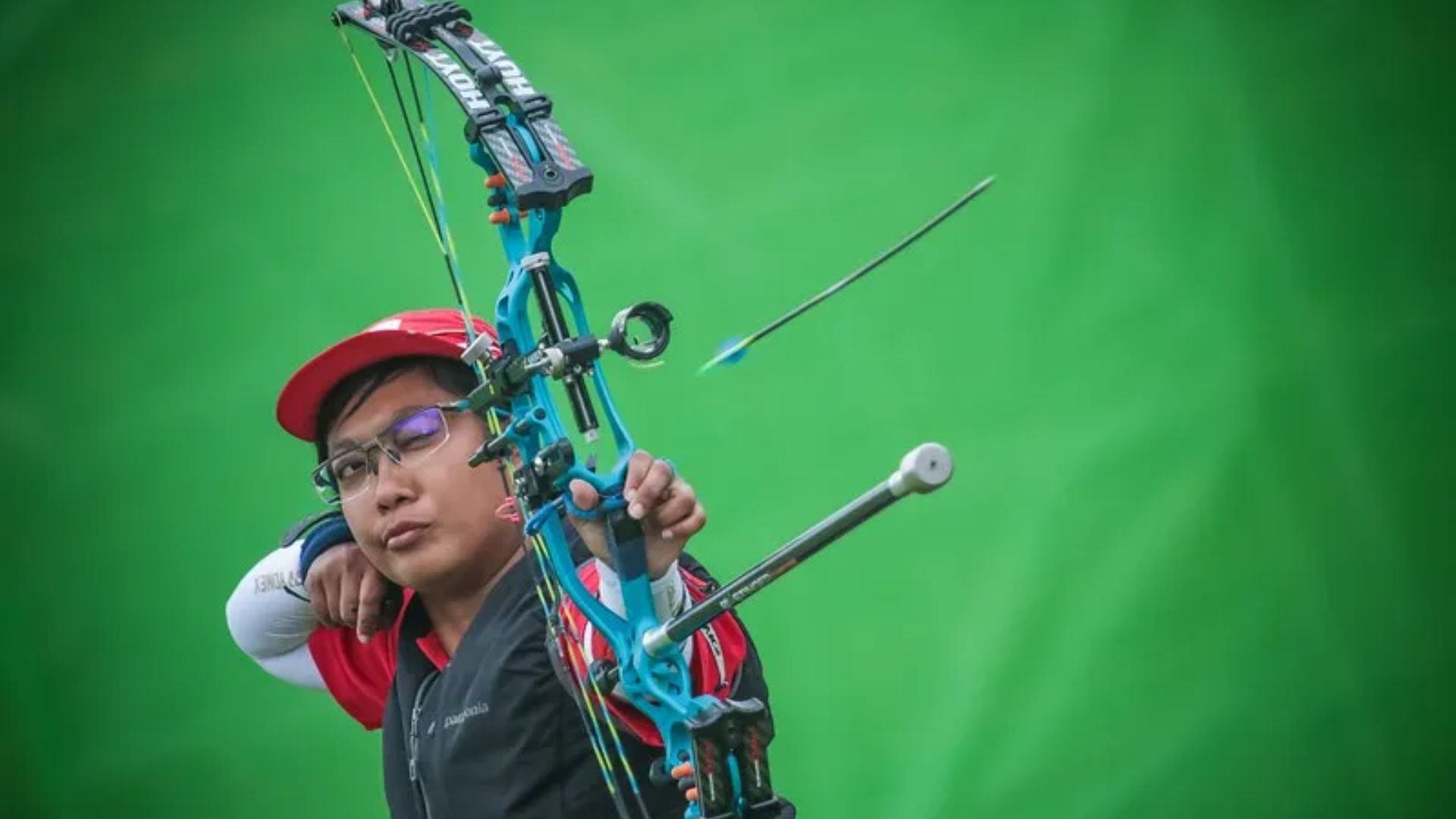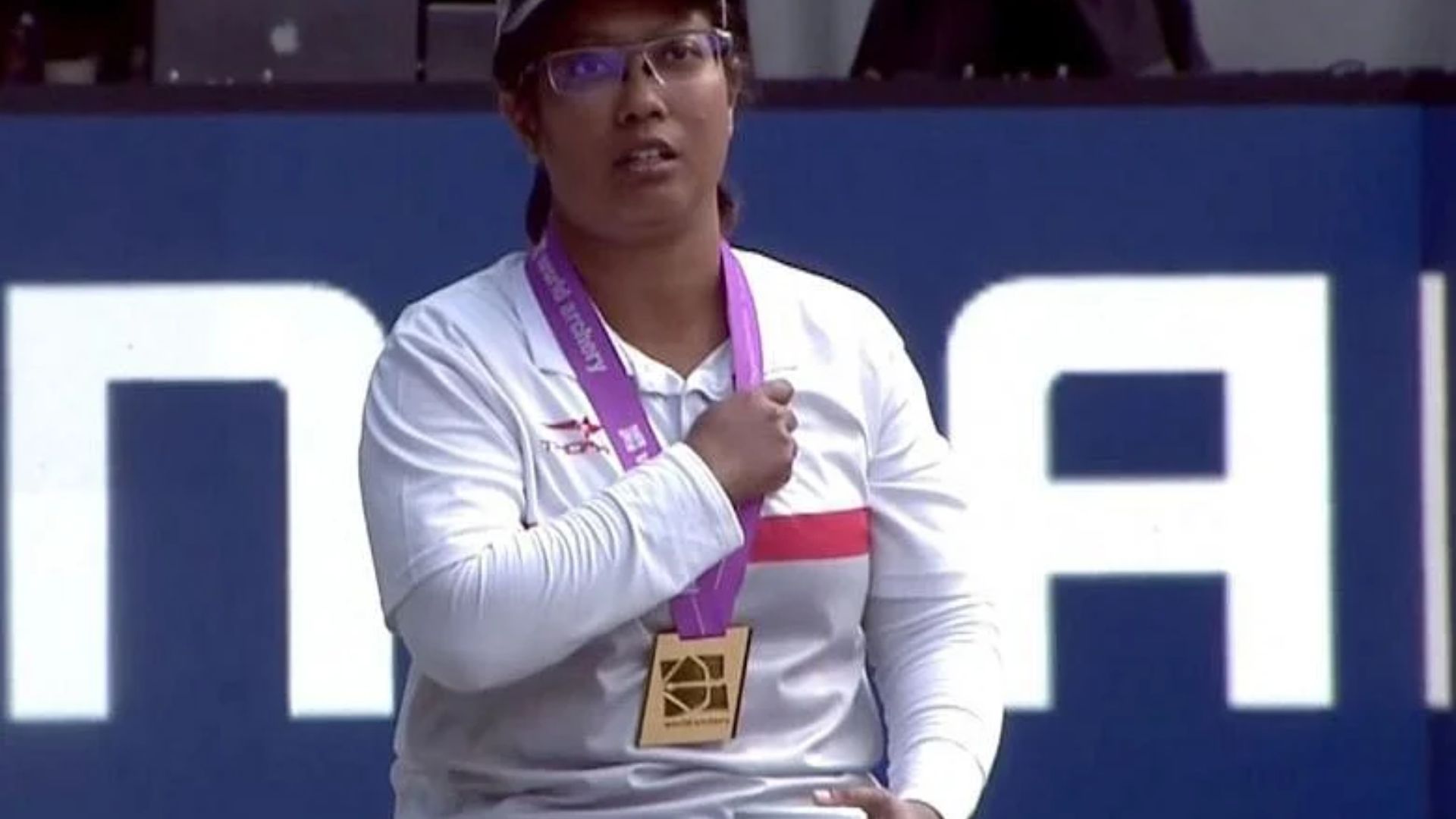Para archer Nur Syahidah Alim’s passion for gold did not wane when she crashed out of Tokyo Paralympics. It did not even tarnish when she could not retain her world title after losing in the quarter finals earlier this year.
Instead, the 37-year-old still holds her head high, still keeps on smiling and still continues to hone in her game with coach and former national archer Pang Qing Liang to hit the bullseye — Paris 2024.
“Next year will be a very busy year for me because we have the Asian Para Games, and also the qualifications for Paris 2024. For now, I think the team and coach are still working on my competition plan. But we are definitely focusing on getting my shooting standard even higher and getting my confidence level a lot stronger. After Covid-19, there is definitely a game changer for archery and standards have definitely increased a lot more so we have to keep up with the pace,” she tells TheHomeGround Asia.
The Singapore sharpshooting sportswoman claimed her first gold on her debut run at the ASEAN Para Games in 2015. It was held in Singapore.
“It was the first time I debuted as a national athlete. I was excited and also a bit nervous because it was on home ground and we all wanted to do well for Singapore. Also at that time, archery was new and we were a new team for Singapore. So, I think there were a lot of things to prove,” she says.
Winning the gold was “unexpected because we were the underdogs at that time”, Syahidah says. “We were shooting against quite seasoned archers of the Southeast Asia region, like those from Thailand and Malaysia, who were at that time well known as the stronger competitors. So, I think we did great,” she adds.
As a debutant, she competed “with no expectations at all” and it was the first time that the Republic fielded an archery team at the ASEAN Para Games.

“I just did my best, and did what I could, and even enjoyed the process. So I was really glad that we won two historic golds for Singapore – one for the individual women, and the other for the mixed team with Robert (Foch). That achievement actually paved the way for me to continue being a national athlete and to represent Singapore,” she says.
It was a repeat performance at the 2017 ASEAN Para Games in Kuala Lumpur, beating Malaysia’s Nor Sa’adah Abdul Wahab to claim the victory and the gold.
“It’s really an awesome experience to be able to not only represent Singapore in archery for my second ASEAN Para Games but also to defend my gold. The feeling is unreal. I feel that all my hard work and training with my coach and the rest of the team paid off.” Syahidah said then.
Syahidah claimed her third straight gold at the ASEAN Para Games series, this year in Solo. After five gruelling days of competition in the Lapagan Kota Barat Stadium, battling the sun, wind, and nerves, Syahidah fended off fierce rivals in the qualification rounds, through the knockout stages, to emerge victorious in the finals, besting finalist Praphaporn Homjanthuek from Thailand in a battle of precision and taking the win.
Rising above her disability and from being a victim of bullying
Syahidah had done well for someone who was bullied during her childhood and teenage years.
Born with diplegia, a type of cerebral palsy which affects the lower limbs, Syahidah’s mother never let her know she was handicapped in any way.
“Since I was born, my mum has had this perception that I should be prepared to be independent. So everything and anything within the home was made for me to learn how to be independent – from doing household chores, to cooking, and cleaning the home, washing dishes, helping my parents with Hari Raya preparations. There wasn’t any excuse that I couldn’t do it. That’s how I grew up and it helped me to be who I am right now,” Syahidah says.

But it was in school when she realised that she was different. At that time, awareness about people with disabilities in mainstream schools was lacking.
“My classmates approached me with a different perception. They would ask a lot of questions like, ‘Why do you walk like that?’ or ‘Why can’t you run like normal people or do PE?’ At that time, I wasn’t able to answer all of those (questions) because I myself was also not sure what I am or why I was in this situation. So since kids don’t know how to handle it, I ended up being bullied,” she recalls.
“Most of the time, they didn’t want to be friends. During recess time when I tried to play with them, they would say, ‘Oh, no. You can’t run, you can’t hop, you can’t skip. We don’t want to lose in badminton’, for example. From then on, I lacked confidence in myself, and got a little lonely. I spent a lot of time in the library reading books and studying,” Syahidah says, adding that she had very few close friends. “So it got pretty lonely sometimes in school,” she says
Once again, it was her mother who introduced Syahidah to sports. As part of my training to be independent, her mother wanted her to be able to swim as part of life skills, “in case I’m in the water, and things happen, I can at least swim”.
“She signed me up for swimming lessons at a public swimming pool, but at that time, it was really difficult because the majority of the swim coaches did not want to take me on. They didn’t know how to handle kids with disabilities. Then mum saw a group having class and she approached. At first he was hesitant but then mum made him a deal. If he could teach me, he would also be taking on my younger sister and her friend – a three-in-one deal. He gave it a shot, and that was how I learned to swim – from beginner’s all the way to lifesaving,” she says, adding that she loves the water a lot.
But in school, Syahidah did not get a chance to participate in any sports CCA so it is no wonder she got curious when she grew up. “I was 18 when SDSC (Singapore Disability Sports Council) organised a Singapore disability sports expo. That was when I found out there was something called para sports and that was how I got to know about archery,” she says.

Syahidah was like a kid in a candy shop at the SDSC exposition and “I wanted to learn more about all the sports so I tried everything – from handcycling to parasailing and badminton”.
“But I think archery really suits me most. That was also my first time handling a bow and arrow. There was a little demonstration and SDSC asked if I wanted to give it a try and I did. So I tried for the first time, and I managed to shoot all my arrows into the centre of the board. It gave me a sense of achievement and that was when I decided to take up archery,” she says.
Along the way, Syahidah found out that archery was, at that time, more popular with the men because the sport itself requires a lot of strength to pull the bow, making it more of a masculine sport.
“I told myself if I want to do something that is unique for me, I should challenge myself. So that’s how I decided to take on archery. The first time I started, I got bruises on my arm. It was normal because at that time, we were still learning about form and processes. The first lesson was definitely the hardest. One of the coaches mentioned that this was how we learn – by getting whipped by the bow. If we wanted to not get whipped, we needed to know how to shoot in the correct form. I practised a lot to the point that I didn’t get whipped,” she says.
After that, Syahidah never looked back.
On the path of rediscovery
After she bagged two gold medals at her debut at the 8th ASEAN para Games in 2015, Syahidah became the first woman archer to represent Singapore and reached the quarter finals at the Rio 2016 Paralympic Games.
It was an encore performance at the 2017 ASEAN Para Games in KL but Syahidah injured her wrist.
“I had to recover for two, three months. The doctor had given me an ultimatum. He said if I did not want the injury to become serious, I should stop archery for good. That signalled that I should really focus on my health first before anything else, so I actually did and pulled a full recovery after two to three months,” she says.
But the injury affected her mentally and physically.
“The physical recovery was actually easier but the mental part needed a lot more work. So Qing Liang, my coach at that time, helped me on both my physical and mental parts of my training,” she adds.
Before the World Championship in 2019, Syahidah attended smaller competitions. “My first was the Macau Open, which was the Indoor World Championship stage one. The indoor was actually a shorter distance, 18 metres. So that was my first road back to competition after my injury,” Syahidah says.
“The whole idea was to take it slow, start with a shorter distance, and then make my way to the usual 50 metres. I was happy that I won silver for that championship. After that, we went to Mexico for the Mexican Open. That actually helped to build my confidence a little and get my form and the process right again,” she adds.
After Mexico, Syahidah competed in the European Cup in Italy where she suffered her first loss post injury.
“That was when we focused on what we needed to do – strengthen and improve both the body and the mind. Qing Liang and I worked on that a lot up to the point of the world championship,” she says.
The strategy worked because after a close match against British defending champion Jessica Stretton at the final of the 2019 World Archery Para Championships in Hertogenbosch, Netherlands, Syahidah became Singapore’s first-ever world champion archer.

“I was only focusing on my coach’s voice, my process and routine. It was a really happy moment for me. It’s my first gold medal at my first para world champs,” she said after her win.
The Covid-19 pandemic threw a spanner in the work for Syahidah, “disrupting our rhythm of competing”.
“There was a lot of self doubt and anxiety as to whether I could shoot as well as I did before Covid. I think it was not so much the expectations or the pressure after the world championship but more about whether I could still perform as well as before for Tokyo 2020, which was actually our first competition back from Covid,” she says.
“In sports, competition is very important to us because it gives us exposure and prepares us for anything such as windy conditions and cheering. Tokyo 2020 was like a starting point for me to be back after the Covid pandemic. Unfortunately, I didn’t do as well as I should have liked. I felt a little disappointed in myself, but Qing Liang and the team assured me that this is something that we can learn from so we can do even better for the next one. That’s how we continue to be resilient and just push forward,” Syahidah says.
Training with able-bodied archers
Having trained with the able-bodied national team while prepping for the 2017 ASEAN Para Games, Syahidah became the first para archer to do so and she is looking forward to the day when both able-bodied and para archers could compete on a level playing field.
“It is great to have that dream of being able to compete in competition alongside able-bodied competitors. Some countries are already doing this, especially in the US. But this really depends on the organisers of the regional or international games, whether they are prepared in terms of logistics, as well,” she says.
“I have been very happy to be able to train with able-bodied archers and they have been really great training with us. They have been very helpful and open-minded, so, I hope that in the future, more organisers will allow para athletes to compete in major games. For the world archery competition, they have opened up competitions for para athletes,” she says.
As for future generations of para athletes, Syahidah says, “The first step is definitely the hardest and like everything else, it takes a lot of commitment, a lot of passion and time towards getting your skills to get where you want to go. So just continue pushing forward but continue to enjoy the experience.”
RELATED: Passion for gold: Singapore shuttler Loh Kean Yew
Join the conversations on TheHomeGround Asia’s Facebook and Instagram, and get the latest updates via Telegram.














